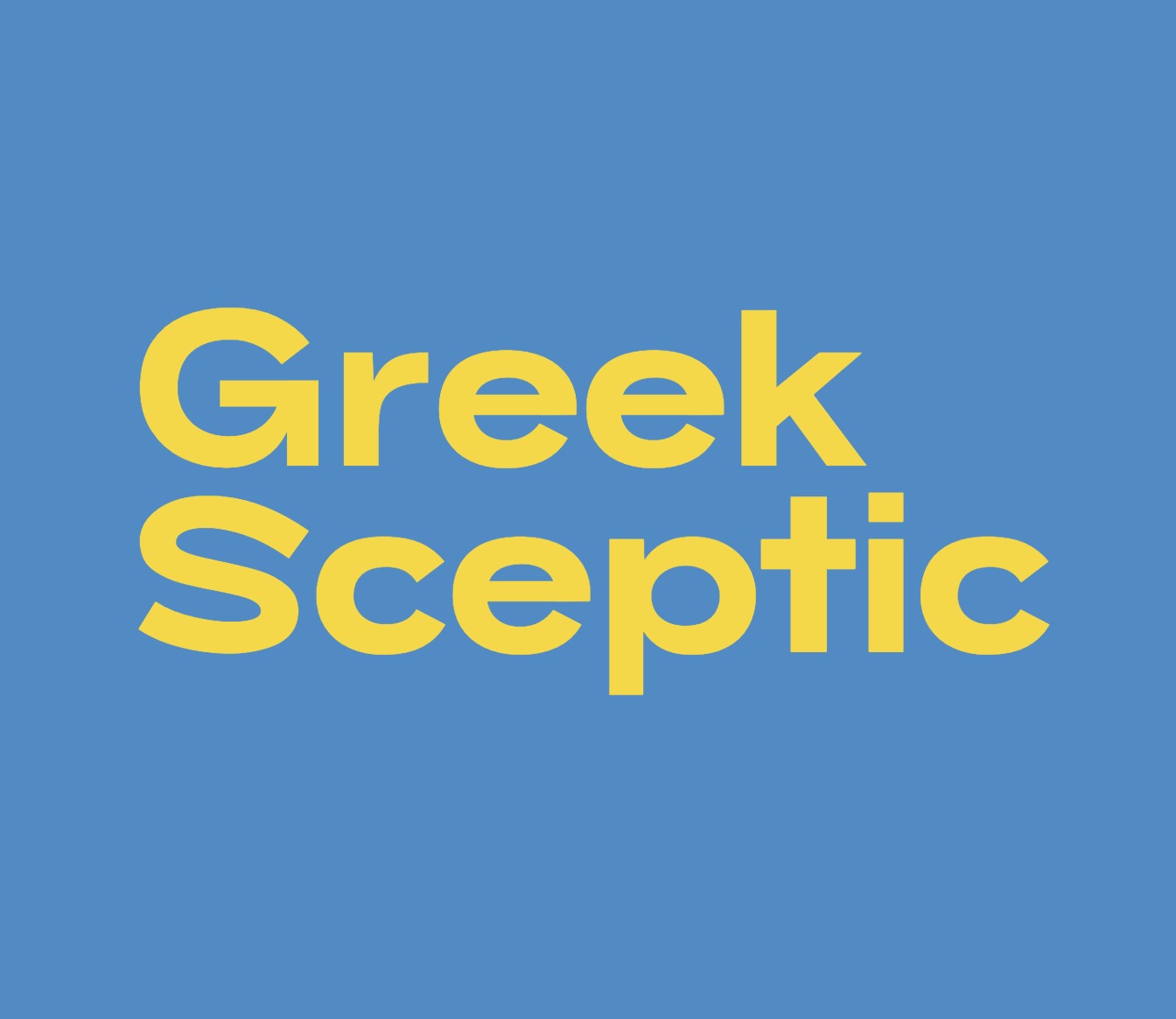Ancient Greek Skepticism and Mythology
Can We Trust Our Senses? The Age-Old Question Revisited
Skepticism about our senses has persisted through ages, but what if our perception is more flawed than we ever imagined? Discover the unsettling truths ahead.

You can't always trust your senses. Philosophers like Plato and Descartes have long questioned the reliability of perception. Your brain actively reconstructs sensory data, often filtering out 90% of visual information. Context, biases, and past experiences also distort your understanding of reality. Illusions and cognitive quirks further complicate what you think you know. While your senses evolved for survival, they can mislead you at times, raising doubts about their accuracy. To navigate this complexity effectively, consider how memory and context shape your perceptions. There's much more to uncover about the intricate relationship between sensation and reality.
Key Takeaways
- Our senses often mislead us, as they are filtered and reconstructed, leading to distortions in perception and understanding of reality.
- Cognitive biases and contextual influences can significantly alter how we interpret sensory information, complicating our trust in what we perceive.
- Philosophical skepticism, as seen in Plato and Descartes, raises questions about the reliability of sensory experiences and their authenticity.
- Neuroplasticity shows that our perception is dynamic and shaped by experiences, indicating that trusting our senses may not always yield accurate results.
- Evolution has prioritized survival over perfect accuracy, leading to an inherent limitation in our sensory capacities compared to other species.
Historical Perspectives on Perception
Throughout history, philosophers have grappled with the complexities of perception and reality. You've likely encountered the age-old debates stemming from thinkers like Plato and Zhuang Zhou, who challenged the nature of what we perceive versus what truly exists.
Plato's Allegory of the Cave illustrates how our senses can deceive us, pushing you to question whether you can really trust them. Radical skepticism, discussed by philosophers like Pritchard, emphasizes the uncertainty surrounding knowledge and the reliability of your sensory experiences. This uncertainty is echoed in the rich cultural heritage of the Hopi Tribe and their unique architectural styles, which reflect their deep spiritual connection to the land, reminding us of the intricate relationship between perception and cultural identity.
As you explore these ideas, you realize that the historical context of skepticism has influenced modern epistemology considerably. The brain in a vat hypothesis and Nick Bostrom's simulation theory echo those ancient concerns, making you wonder how much of your perceived reality is genuine.
This evolution of thought highlights a critical distinction: knowledge as justified true belief versus the unending debates about the trustworthiness of your senses. Ultimately, you're left contemplating whether your sensory experiences can be fully trusted, as these philosophical inquiries challenge the very foundation of what you consider reality.
The Matrix and Reality

In "The Matrix," you're confronted with the unsettling idea that your reality could be nothing more than a simulation, raising questions about what you can truly trust.
This challenges you to reflect on the difference between perception and actual reality, as well as how knowledge is built on belief. As you explore these dilemmas, you'll find that understanding what's real becomes a complex journey.
The essence of consciousness, often shrouded in mystery, can be likened to the spiritual energy that influences our perceptions and experiences in life, revealing the intricate connection between belief and reality.
Exploring the nature of spiritual energy invites deeper introspection and may lead to insights about our existence.
Simulated Reality Dilemmas
How can we truly trust our senses when they might be deceiving us? The concept of simulated reality, as vividly illustrated in *The Matrix*, challenges your understanding of perception. Imagine living in a world where every sensory experience is meticulously orchestrated, just like the characters in the film.
This idea isn't just fiction; Nick Bostrom's simulation hypothesis suggests that advanced civilizations could create experiences indistinguishable from your reality. It forces you to question if what you perceive is genuine or merely a clever illusion.
In a similar vein, individuals with BPD symptoms often struggle with distorted perceptions of reality due to emotional dysregulation, which can further complicate their understanding of their experiences.
Consider the brain in a vat thought experiment, which echoes the dilemmas faced in *The Matrix*. If external forces can manipulate your sensory input, how can you trust your senses? Historical skepticism, like that presented by Descartes, underscores this potential for sensory error. It raises serious doubts about the authenticity of your experiences.
As you ponder these simulated reality dilemmas, remember that the distinction between perceived reality and actual reality remains hotly debated in philosophy.
Ultimately, you're left grappling with the unsettling question: how can you trust your senses when they might simply be part of an elaborate simulation?
Perception Versus Actual Reality
Perception often diverges sharply from actual reality, a theme expertly explored in *The Matrix*. This film presents a world where sensory experiences are artificially manipulated, raising questions about what's real. Philosophers like Plato and Descartes have long questioned the reliability of our senses, challenging the assumption that our perception accurately reflects reality.
Cognitive science backs this up, revealing that cognitive biases and external influences can distort how you perceive the world. In our increasingly digital age, the rise of AI-generated content also complicates this landscape, as AI and misinformation risks can create confusion about what's true and what's not.
Reflect on optical illusions: they're perfect examples of how your visual perception can mislead you. What you see isn't always the truth. These distortions complicate the distinction between perceived reality and objective reality.
As you navigate your daily life, you might find it hard to trust what you perceive, especially in light of ongoing debates in epistemology about knowledge acquisition.
Ultimately, *The Matrix* serves as a metaphor for these philosophical inquiries, asking you to reflect on the nature of your reality. Are you living in a world dictated by your senses, or is there something deeper beneath the surface? Your perception shapes your experience, but it doesn't always align with what's factually true.
Knowledge and Belief Distinctions
What distinguishes knowledge from mere belief in a world filled with sensory deceptions? The divide lies in the justification of what you perceive. In "The Matrix," characters grapple with the illusion of reality, prompting you to question whether you can truly trust your senses. Knowledge requires more than just sensory input; it demands justification and truth, a concept rooted in epistemology.
| Aspect | Knowledge | Belief |
|---|---|---|
| Definition | Justified true belief | Acceptance of a proposition |
| Justification | Supported by evidence | Lacks sufficient evidence |
| Reliability | Generally consistent | Often subjective |
| Connection to Reality | Closer to actual reality | May diverge from actual reality |
Philosophers like Nick Bostrom have illustrated how our experiences could be manipulated, much like the brain in a vat scenario. Plato's Allegory of the Cave also emphasizes this tension between perceived and actual reality. If sensory experiences can lead to false beliefs, how can you ascertain what you know? Understanding this distinction is crucial in steering through the complexities of reality.
Neuroscience of Sensation
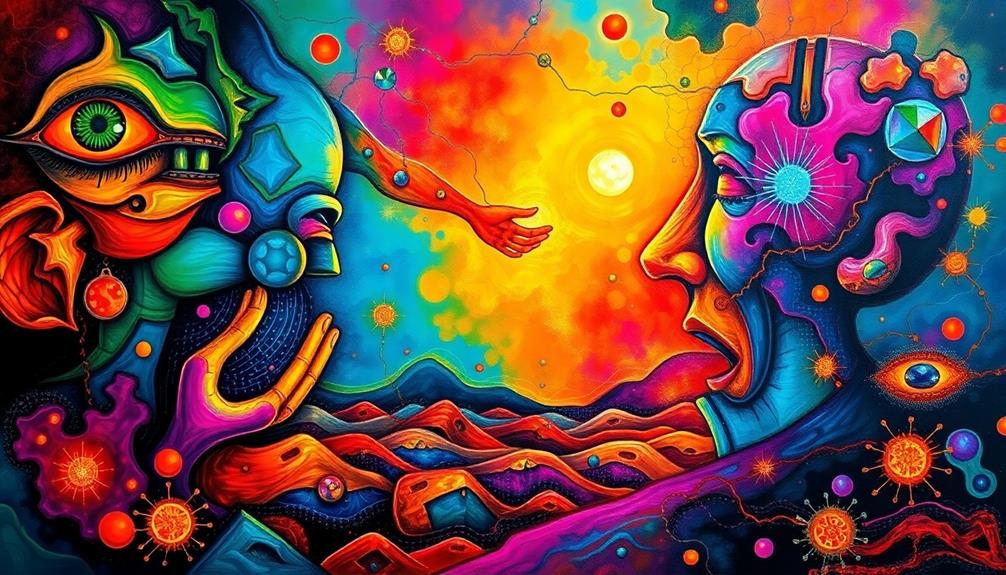
The neuroscience of sensation uncovers the intricate ways your brain processes sensory information, revealing a complex web of neural pathways that can lead to surprising discrepancies between what you experience and the actual stimuli around you.
Your brain discards a significant amount of sensory information—some estimates suggest that 90% of visual data is filtered out before it even reaches your conscious awareness. This means that what you perceive is often just a fraction of reality. Notably, certain scents can influence your emotions and mood, as seen in aromatherapy's effects, which can trigger the release of neurotransmitters that impact how you feel in the moment.
Various factors influence your sensory perceptions, including psychological conditions, attention, and context. For instance, research on optical illusions shows how easily your brain can be tricked into perceiving false information, raising questions about the reliability of your sensory inputs.
Additionally, neuroplasticity allows your brain to adapt its processing of sensory information based on experiences, indicating that perception isn't static; it's dynamic and shaped by learning.
In this light, the neuroscience of sensation emphasizes the brain's vital role in interpreting sensory data, suggesting that what you think you see, hear, or feel mightn't always align with the actual world around you. Trusting your senses can sometimes be a gamble.
Cognitive Science Insights
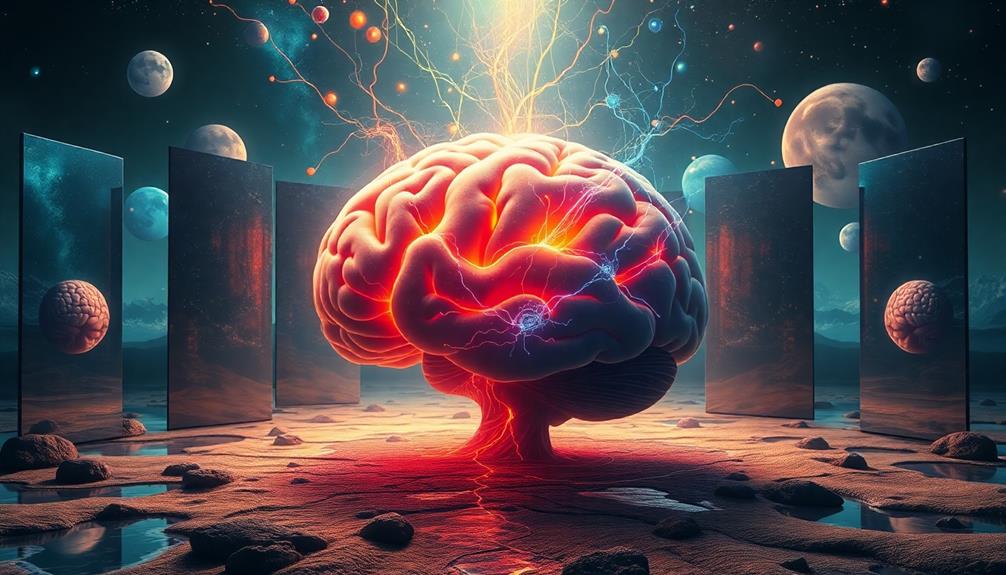
While our senses provide us with a window to the world, cognitive science reveals that these perceptions can be easily distorted by biases and contextual factors. This distortion resonates with themes from utilitarian thinkers' declarations emphasizing the moral implications of actions influenced by perception.
Your brain processes sensory information through intricate cognitive mechanisms, often filtering and reconstructing data instead of offering a direct view of reality. This means your perception can be influenced by cognitive biases, leading to misjudgments and misconceptions about what you experience.
Research shows that cultural differences play a significant role in shaping how you interpret sensory stimuli. Your individual experiences and societal contexts can alter your perception, making it essential to recognize these influences.
Cognitive scientists emphasize the importance of understanding these perceptual limitations; relying solely on your senses might make you skeptical about their accuracy in various situations.
The interplay between perception and cognition is vital for maneuvering complex environments. Cognitive processes help you make sense of sensory inputs, allowing you to adjust your responses accordingly.
Illusions and Magic

Illusions and magic captivate audiences by exposing the quirks of human perception. When you watch a magic trick, you might find yourself amazed as your senses are manipulated, revealing the limitations of what your brain can process. These performances often exploit cognitive biases and the illusion of absence, leading you to perceive events that aren't really happening.
For instance, similar to how users experienced disruptions during the recent Microsoft outage that affected productivity, illusions can disrupt our expectations and understanding of reality.
Misdirection and expectation play vital roles in creating these convincing illusions, showing just how easily your attention can be controlled. Research on optical illusions, like the Müller-Lyer illusion, illustrates that your brain actively reconstructs visual information, often leading to discrepancies between what you see and what's actually there.
As you explore the world of magic, you'll discover that understanding these principles enhances your sensory experience. Even trained observers can fall victim to illusions, proving that context matters in how you interpret sensory data.
This insight into magic and illusions emphasizes the need for critical evaluation of what you perceive, reminding you that your senses can be deceived, regardless of your level of awareness.
Trusting Our Senses

You rely on your senses every day to make decisions and stay safe, but they've their limitations. While evolution has shaped these perceptions for survival, they can sometimes lead you astray, especially when influenced by biases or past experiences.
For instance, just as seniors navigate the complexities of communication through texting, understanding the nuances of our senses can help bridge gaps in perception.
Seniors texting humor highlights how humor can alleviate feelings of isolation, showcasing the importance of connection in our experiences.
Understanding these constraints can help you better navigate the world around you.
Limitations of Sensory Perception
The limitations of sensory perception can often lead to significant misinterpretations of our environment. While you may rely heavily on your senses to navigate daily life, they're not infallible. Compared to other species, human senses are inherently limited, which means you mightn't always get an accurate picture of reality.
Cognitive biases can distort your perception, as demonstrated by optical illusions where your brain reconstructs visual information based on expectations. This is particularly relevant when considering complex interpersonal dynamics, such as those involving individuals with narcissistic traits, where perception can be heavily influenced by emotional manipulation.
Moreover, your brain discards much of the visual input it receives, relying on past experiences and context to fill in gaps. This can lead to errors in judgment, especially in high-stakes situations.
Psychological conditions and cultural differences further complicate sensory experiences, proving that what you perceive isn't universally reliable.
Trusting your senses is essential for survival, but recognizing their limitations is equally important. Misjudgments based on sensory information can lead to dangerous situations, so it's imperative to approach sensory-based decision-making with caution.
Evolutionary Trust in Senses
Throughout human evolution, senses have played an indispensable role in survival, shaping how you interact with your environment. Your senses, developed as survival mechanisms, allow you to identify predators and detect threats, enhancing your chances of staying safe. This evolutionary trust in your senses stems from a long history where relying on sensory perception prioritized survival over perfect accuracy.
Continuous advancements in algorithms, particularly in latest breakthroughs in machine learning tech, further enhance our understanding of sensory data interpretation.
While your senses mightn't be as advanced as those of other species, like dogs or mantis shrimp, they've adapted to help you navigate complex surroundings effectively. Trusting your senses is essential, as misjudgments can lead to dangerous situations. When you rely on your sensory experiences, you're tapping into a rich history of adaptation that has kept your ancestors alive.
Moreover, collective agreement on sensory experiences reinforces this trust, as shared perceptions create a common understanding of reality important for social interactions and cooperation.
In everyday decision-making, this evolutionary trust in your senses becomes critical, helping you respond to your environment swiftly and efficiently. Embracing this trust, despite some limitations, empowers you to navigate your world more confidently.
Limitations of Sensory Experience

Many people may not realize how limited our sensory experiences truly are. While your senses are essential for traversing the world, they're not as reliable as you might think. For instance, you rely on your vision, yet optical illusions show just how easily your brain can misinterpret visual information. This filtering process can lead to significant misjudgments about reality.
Consider these limitations of sensory experience:
- Inaccurate Perception: Your brain reconstructs sensory information, which can distort what you see or hear.
- Species Comparison: Other creatures, like mantis shrimp or dogs, possess superior sensory capabilities that highlight our limitations.
- Cultural Influence: Your background can shape how you interpret stimuli, complicating communication.
- Sensory Loss: Losing a sense, like smell, can alter personal relationships and emotional connections.
- Selective Attention: You might focus on certain details while overlooking others, leading to skewed perceptions.
Understanding these limitations helps you traverse life with a more critical eye. Trusting your senses isn't always straightforward, and recognizing these constraints can improve decision-making and interactions with others.
The Role of Memory

Memory profoundly shapes how you perceive and interpret sensory experiences. It acts as a lens, filtering your perceptions based on past encounters. For instance, if you've had food poisoning linked to a specific taste, that memory can create a strong aversion, affecting how you react to similar flavors in the future.
| Memory Impact | Example |
|---|---|
| Emotional Response | Negative experiences lead to aversions |
| PTSD and Anxiety | Sensory reminders trigger anxiety |
| Expectation Influence | Past memories alter taste evaluations |
Your sensory perceptions aren't just raw data; they're colored by what you remember. Research shows that PTSD can distort your current perceptions by triggering anxiety through sensory reminders of past trauma. This distortion complicates the reliability of your sensory input, leading to false alarms, like mistaking familiar objects. Furthermore, your expectations can greatly sway taste perception, revealing how memories can alter current evaluations. As a result, you may find it challenging to trust your senses, knowing that memory plays an essential role in shaping your reality.
Frequently Asked Questions
Can Our Senses Be Trusted?
Your senses can be misleading. They're influenced by context, cognitive biases, and even your emotional state. While they help you navigate your world, it's wise to question and critically evaluate what you perceive.
Can We Trust Our Senses to Accurately Represent Reality?
You can't always trust your senses to accurately represent reality. They often mislead you, influenced by cognitive biases and limitations. It's crucial to question your perceptions and seek objective evidence to understand the true nature of your experiences.
Which Philosopher Said We Cannot Trust Our Senses?
You might find that René Descartes argued we can't trust our senses. He believed they can be deceptive, leading to false beliefs about reality, prompting his skepticism and the need for rigorous scrutiny of our perceptions.
When Can We Not Trust Our Senses?
Sometimes your senses can play tricks on you, like a magician pulling rabbits from hats! You can't trust them when you're tired, intoxicated, or facing cognitive biases, leading you to misinterpret your surroundings.
Conclusion
In the end, you can't help but wonder how much you can really trust your senses. From ancient philosophers to modern-day neuroscientists, the quest for understanding perception continues. Just like in a sci-fi movie where reality bends and twists, your senses can deceive you. But that doesn't mean you should throw them out the window. Embracing their limitations while staying curious keeps you grounded in a world that's often more complex than it seems.
Ancient Greek Skepticism and Mythology
The Most Eye-Opening Lessons From Greek Philosophical Debates
Navigate the profound insights of Greek philosophical debates and discover how questioning can transform your understanding of morality and personal growth. What will you uncover next?

Greek philosophical debates offer eye-opening lessons that can reshape your perspective. By embracing the Socratic method, you learn the power of questioning and dialogue, which fosters deeper understanding and critical thinking. Acknowledging your ignorance opens pathways to continuous growth, inviting you to challenge your beliefs and societal norms. These discussions emphasize the importance of morality, encouraging you to prioritize your values over external pressures. Engaging in open dialogue not only enhances relationships but also propels personal and intellectual development. If you keep exploring, you'll uncover even more insights that can inspire your journey of self-discovery.
Key Takeaways
- Engaging in philosophical debates fosters critical thinking by encouraging individuals to question their beliefs and recognize their own ignorance.
- The Socratic Method highlights the importance of systematic questioning in uncovering deeper truths and enhancing understanding.
- Challenging conventional wisdom promotes intellectual curiosity and can lead to personal growth and societal progress.
- Emphasizing moral integrity over societal norms cultivates authenticity and true happiness in one's beliefs and actions.
- Open dialogue in philosophical discussions strengthens relationships and builds trust by encouraging honest exploration of diverse perspectives.
The Power of Questioning
The Power of Questioning
Questioning is a powerful tool that can transform your understanding of the world. You mightn't know anything about the Socratic method at first, but once you engage, you'll see its impact. Socrates championed systematic questioning, pushing you to challenge assertions and definitions, which encourages deeper understanding and critical thinking.
This method disrupts complacency, urging you to recognize your own ignorance and fostering a genuine thirst for knowledge. In relationships, much like the insights from navigating relationship stages, questioning can help uncover underlying issues and enhance communication.
When you embrace this approach, you'll realize that the real truth often lies beneath surface-level beliefs. Socrates believed that true wisdom starts with acknowledging what you don't know. By questioning established ideas, you can highlight flaws in reasoning that most people overlook.
This mindset doesn't just apply to philosophical debates; it extends to everyday conversations and learning. You may think anyone can simply accept what's presented, but questioning leads to intellectual curiosity that sparks deeper insights and meaningful discussions.
Embracing Personal Ignorance

Embracing your own ignorance can be a powerful step toward growth. By acknowledging what you don't know, you open yourself up to continuous learning and a deeper understanding of the world around you.
This humility in knowledge not only enriches your perspective but also fuels your curiosity. As curiosity enhances problem-solving abilities and boosts mental health, it creates an environment conducive to exploration and innovation, making you more adaptable in life's challenges.
This transformative power of curiosity encourages a lifelong passion for discovery and knowledge acquisition.
Humility in Knowledge
Many people struggle with the idea of acknowledging their own ignorance, yet this recognition is a powerful catalyst for personal growth. In Ancient Greece, Socrates showcased how admitting what you don't know can lead to true wisdom. He famously declared, "I know that I'm intelligent because I know that I know nothing."
This statement captures the essence of humility in knowledge, urging you to confront the vastness of information beyond your grasp. Embracing this humility can enhance your relationships, as open dialogues are essential for rebuilding trust amid uncertainty, much like the way one must navigate trust issues with boyfriends.
Socrates' method encourages you to question your beliefs during discussions, pushing you to explore your assumptions and embrace your limitations. This mindset isn't just an academic exercise; it's a way of life that fosters intellectual curiosity and growth.
Even during tumultuous times, like the Peloponnesian War, Socrates remained steadfast in his belief that recognizing one's ignorance is invaluable. His commitment to humility ultimately led to his trial and death, as he prioritized personal conviction over societal norms.
Yet, his legacy continues to inspire you to seek truth and enlightenment. By understanding and accepting what you don't know, you lay the groundwork for lifelong learning and deeper insights.
Continuous Learning Mindset
In the pursuit of knowledge, cultivating a continuous learning mindset transforms how you engage with the world. Socrates taught that recognizing your own ignorance is the first step toward true wisdom. By embracing this idea, you open yourself up to a lifelong journey of learning and self-improvement, which aligns with the insights from the 16PF Questionnaire that emphasizes identifying strengths and weaknesses for personal growth.
Acknowledging the limits of your knowledge fosters humility, allowing you to welcome new perspectives and insights.
Here's how you can embrace a continuous learning mindset:
- Question Everything: Regularly challenge your beliefs and assumptions through inquiry.
- Stay Curious: Cultivate a sense of curiosity that drives you to explore new ideas and experiences.
- Embrace Feedback: Value constructive criticism as a tool for growth, not as a personal attack.
- Adapt and Evolve: Be willing to adjust your views as you gain new information and insights.
Socrates' approach highlights that confronting your ignorance is essential for enlightenment. By adopting this mindset, you'll not only enrich your intellectual life but also enhance your personal growth, making you more adaptable and open to the world around you.
The Role of Morals

When it comes to morals, you might find yourself torn between personal integrity and societal expectations.
Socrates teaches us that true happiness comes from courageously standing by your beliefs, even when it's unpopular.
This principle is especially relevant in emotionally charged situations, such as navigating emotional volatility during a divorce.
Personal Integrity Over Conformity
Personal integrity stands as a powerful counter to societal pressures, urging individuals to prioritize their moral beliefs even in the face of conformity.
Socrates exemplified this by valuing his principles over societal norms, ultimately facing trial and death for them. His unwavering commitment highlights the importance of living authentically, suggesting that true happiness comes from upholding your values rather than bending to collective expectations.
Embracing unconditional love for oneself can also empower individuals to stand firm in their beliefs, fostering resilience in the face of external challenges.
Consider these points when reflecting on personal integrity:
- Authenticity Matters: Endeavor to be true to yourself, even when it's uncomfortable.
- Challenge Norms: Question societal conventions that conflict with your morals.
- Courage Counts: Standing firm in your beliefs can lead to meaningful change.
- Legacy of Values: Your choices today shape not only your life but also influence others.
Courage in Belief
Courage in belief is essential for traversing the complexities of moral dilemmas, as it empowers you to stand firm in your convictions despite external pressures. Socrates serves as a powerful example, prioritizing personal beliefs over societal norms. He faced trial and ultimately death for his conviction that moral integrity is more important than conforming to the laws of Athens. This act of bravery highlights the strength of one's beliefs in the face of adversity.
In life, just as individuals coping with the emotional challenges of illness must confront their fears, the act of standing by one's beliefs requires a similar fortitude. By adhering to his principles, Socrates argued that a life lived authentically leads to true happiness, rather than mere compliance with societal expectations. His commitment to his values, even at the cost of his life, underscores the importance of moral courage in the pursuit of truth.
Socratic philosophy encourages you to confront ethical dilemmas with bravery, pushing you to explore your own values and the consequences of your beliefs. In a world often swayed by popular opinion, embracing courage in belief fosters resilience. It empowers you to navigate moral challenges with clarity, ensuring that your actions align with your true self, regardless of the societal pressures that may arise.
Defining True Happiness
True happiness isn't merely a fleeting emotion; it's deeply rooted in the alignment of your actions with your moral values. Socrates believed that living with moral integrity leads to genuine fulfillment. He encouraged you to prioritize your own convictions over societal norms, even at great personal cost.
This devotion to your principles can guide you toward true happiness. To achieve this, it's crucial to foster resilience and protect your energy amidst life's challenges, as protecting energy in chaos allows you to stay true to your values.
To help you navigate this journey, consider these key aspects:
- Self-examination: Regularly reflect on your beliefs and actions to verify they align with your values.
- Pursuit of virtue: Aim for qualities like honesty, kindness, and courage to cultivate a meaningful life.
- Reject superficial pleasures: Recognize that fleeting joys don't equate to long-lasting happiness; focus on deeper ethical considerations instead.
- Influence of others: Surround yourself with those who inspire you to uphold your moral principles and challenge societal expectations.
Challenging Conventional Wisdom
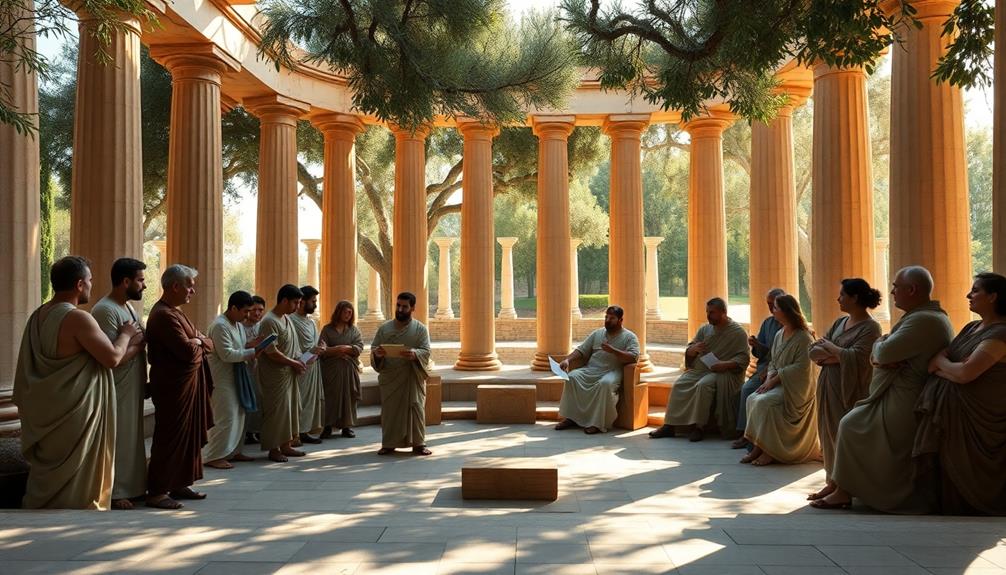
Challenging conventional wisdom is essential for growth and progress, as it pushes you to think beyond accepted norms. Socrates, a pivotal figure in ancient Athens, transformed the debate culture by relentlessly questioning the superficial wisdom of his peers. His Socratic method emphasized understanding definitions and dissecting established beliefs, encouraging you to confront illogical systems prevalent in society.
Below is a summary of key aspects of Socratic debate:
| Aspect | Conventional Wisdom | Socratic Approach |
|---|---|---|
| Basis of Argument | Emotional appeals or divine authority | Logical consistency and reasoning |
| Focus | Accepting norms | Questioning and deconstructing beliefs |
| Societal Reaction | Conformity to laws | Resistance and prioritizing truth |
| Legacy | Maintaining status quo | Inspiring continual pursuit of wisdom |
Socrates' trial and death highlighted society's resistance to those who challenge the status quo. His legacy persists, reminding you that true wisdom involves recognizing your ignorance and aiming for deeper truths. Embrace this mindset, and you'll foster personal and societal growth.
The Value of Dialogue

Engaging in dialogue is essential for uncovering deeper truths and enhancing understanding. The Athenian debate culture often relied on appeals to divine authority, which lacked logical consistency. Socrates challenged this by emphasizing the importance of questioning and dialogue. His method encouraged participants to dig deeper into their beliefs, leading to more meaningful discussions. This approach resonates with the principles of utilitarian thinkers' declarations, who advocate for actions that maximize overall well-being through rational discourse.
Here's why embracing dialogue matters:
- Identifies Flaws: Through questioning, you can expose and dissect flawed reasoning, enhancing critical thinking.
- Encourages Collaboration: Engaging in open dialogue fosters a sense of community, where ideas can be explored collectively for better insights.
- Promotes Clarity: By discussing definitions and concepts, you can clarify your thoughts and refine your understanding.
- Stimulates Growth: The practice of questioning in dialogue supports personal and intellectual development, inspiring you to challenge your own beliefs.
Socrates' legacy continues to shape modern education and communication, reminding us that knowledge thrives in environments where dialogue is prioritized.
Learning From Socratic Methods

Socrates' approach to questioning serves as a powerful tool for learning, encouraging you to critically examine your beliefs about complex concepts like virtue and morality. By challenging established ideas, he pushes you to seek clear definitions and logical consistency, revealing flaws in common reasoning. This method can be likened to how NLP enhances customer interactions, as both emphasize the importance of dialogue and understanding in improving outcomes. This method doesn't just aim to uncover deeper truths; it fosters a mindset of intellectual curiosity and continuous learning.
When you engage with the Socratic method, you confront your own ignorance and acknowledge your limitations. Socrates teaches that true wisdom lies in recognizing the vastness of what you don't know. This perspective shifts your focus from merely accumulating knowledge to valuing the process of inquiry itself.
His legacy continues to influence modern education, emphasizing critical thinking and inquiry as essential tools for knowledge acquisition. By embracing the Socratic method, you empower yourself to question assumptions and develop a deeper understanding of complex issues.
This approach not only enriches your intellectual life but also cultivates a lifelong love of learning and self-exploration. So, immerse yourself in questioning, and let the Socratic method guide you toward greater insight and wisdom.
Frequently Asked Questions
What Were the Most Important Aspects of Greek Philosophy?
Greek philosophy emphasizes rational inquiry, critical thinking, and the pursuit of wisdom. You'll find key aspects like ethics, politics, and dialectical discussions, all encouraging deep questioning and revealing the importance of understanding your own ignorance.
What Did Greek Philosophers Believe Was the Most Important Thing in Life?
Greek philosophers believed the most important thing in life is the pursuit of wisdom and self-knowledge. They emphasized living authentically, questioning beliefs, and endeavoring for a virtuous life to achieve true happiness and fulfillment.
What Are the Famous Greek Philosophical Questions?
Imagine standing in the Athenian agora, pondering the great questions: "What is virtue?" "What is the good life?" "What is love?" Each inquiry invites you to explore morality, happiness, and the essence of knowledge itself.
What Is the Main Focus of Greek Philosophy?
Greek philosophy mainly focuses on understanding existence, knowledge, and ethics. You'll find that it encourages questioning assumptions and exploring concepts like virtue and justice, ultimately shaping how you think about life and society today.
Conclusion
You've just unearthed the timeless wisdom of Greek philosophical debates, realizing how questioning shapes your understanding. Embracing your own ignorance opens doors to deeper insights, while the role of morals challenges your beliefs. As you navigate through life, the value of dialogue will enhance your connections, and you'll find yourself using Socratic methods in everyday conversations. Coincidentally, these lessons might pop up just when you need them most, guiding you toward a more thoughtful existence.
Ancient Greek Skepticism and Mythology
Skepticism Vs Dogmatism: Who Really Holds the Truth?
I delve into the clash between skepticism and dogmatism, revealing how both shape our understanding of truth—what might you discover about your own beliefs?

When you weigh skepticism against dogmatism, it's clear that neither holds absolute truth. Skepticism thrives on questioning and open inquiry, encouraging you to explore various perspectives. It values evidence and promotes intellectual humility. In contrast, dogmatism clings to beliefs as undeniable truths, stifling adaptability and often resisting new information. While skepticism fosters a deeper understanding, dogmatism can lead to rigidity and misinformation. Balancing these two approaches can enrich your grasp of complex issues, guiding you toward a more nuanced understanding of truth. There's much more to uncover about how these ideas interact, so keep exploring!
Key Takeaways
- Skepticism encourages questioning and critical thinking, making it adaptable to new evidence, while dogmatism clings to rigid beliefs as absolute truths.
- Truth is viewed differently; skeptics see it as provisional and context-dependent, whereas dogmatists assert certain beliefs as unquestionable.
- A balance of skepticism and dogmatism fosters deeper understanding, promoting open-mindedness alongside necessary reference points for knowledge.
- Excessive skepticism can lead to cynicism, while dogmatism may result in misinformation and unchallenged assumptions, hindering progress.
- In contemporary contexts, skepticism is vital for assessing information credibility, especially in an era of misinformation and political polarization.
Understanding Skepticism
Skepticism is a philosophical approach that invites you to question the certainty of knowledge rather than accept beliefs at face value. By embracing skepticism, you learn to acknowledge the limits of what you can know.
There are two primary types of skeptics: Nescio, who genuinely seeks truth and recognizes their ignorance, and Nesciam, who justifies their lack of knowledge without pursuing understanding. This distinction shapes how you approach knowledge and inquiry. In various fields, such as projecting technologies, a skeptical mindset can help you discern the differences between essential features like color accuracy and contrast ratios that greatly impact image quality.
Central to skepticism is the concept of epoche, which encourages you to suspend judgment. This suspension allows you to refrain from making definitive assertions while you continue your quest for understanding.
Historical figures like Pyrrho laid the groundwork for this philosophy, emphasizing that true inquiry is crucial for distinguishing what can be known from what remains uncertain.
In your journey, skepticism serves as a powerful tool. It challenges dogmatic assertions and pushes you to question established norms and ideas continuously.
Defining Dogmatism

Dogmatism is all about holding certain beliefs as absolute truths without questioning them. This rigid mindset can provide comfort but often stifles intellectual growth and open dialogue.
Individuals displaying dogmatic traits may struggle to accept differing perspectives, leading to a lack of empathy in interpersonal relationships and potentially hindering effective communication in professional settings, such as in teamwork dynamics.
Let's explore the key characteristics of dogmatism and the implications these beliefs can have on our understanding of the world.
Characteristics of Dogmatism
At its core, dogmatism involves an unwavering belief in certain principles as absolute truths, often disregarding the need for evidence or critical inquiry. When you embrace dogmatism, you tend to prioritize adherence to established doctrines over questioning or examining your beliefs critically. This rigid mindset can create a framework of certainties that feels comforting but ultimately limits your intellectual growth and exploration.
Here's a quick look at some characteristics of dogmatism:
| Characteristic | Description |
|---|---|
| Absolute Certainty | Dogmatists believe anything that aligns with their views. |
| Resistance to Conflicting Evidence | They often dismiss evidence that contradicts their beliefs. |
| Rigid Mindset | A lack of flexibility in thought leads to inflexible positions. |
| Authority Over Inquiry | They favor established doctrines over personal investigation. |
In dogmatism, the static understanding of truth stifles meaningful discourse and limits critical thinking. This mindset can be found in various areas, including religious fundamentalism, where dissenting views are frequently dismissed outright. Understanding these characteristics helps you see how dogmatism can hinder your ability to engage with diverse perspectives.
Implications of Dogmatic Beliefs
How do dogmatic beliefs shape our understanding of the world? Dogmatism offers a rigid framework, presenting certain beliefs as absolute truths. This unwavering acceptance can provide you with a sense of certainty and purpose, but it often comes at a cost.
When you cling to dogmatic views, you might resist conflicting evidence, limiting your intellectual growth and adaptability. For instance, in religious fundamentalism, specific doctrines are held as indisputable, which can lead you to reject alternative perspectives. This tendency can stifle discourse, as dogmatism discourages questioning and critical analysis.
In contrast, skepticism thrives on inquiry and doubt, encouraging you to explore various knowledge claims. Additionally, embracing a more open mindset can enhance cognitive function and memory retention, as seen in the benefits of listening to classical music, which promotes relaxation and better mood regulation (enhances cognitive function).
The implications of dogmatic beliefs extend beyond personal understanding; they shape societal interactions and progress. By prioritizing certainty over curiosity, dogmatism can hinder the evolution of ideas and understanding.
If you embrace skepticism, you open the door to richer discussions and a more nuanced view of the world. Ultimately, while dogmatism may provide comfort, it can also create barriers that keep you from fully engaging with the complexities of life and knowledge.
The Nature of Truth

Truth is a slippery concept that sparks endless debate in philosophy. When you explore the nature of truth, you'll find two opposing views: skepticism and dogmatism.
Skeptics assert that absolute truth is unattainable, emphasizing the need for continual inquiry and adaptability. They argue that what you consider true can change based on new evidence or perspectives, highlighting that knowledge is provisional. This aligns with the idea that curiosity enhances problem-solving abilities through diverse perspectives, further supporting the skeptical approach to truth.
In contrast, dogmatism holds that certain beliefs are unquestionable truths, which can lead to intellectual stagnation. Dogmatists believe in definitive truths that don't require further scrutiny, often dismissing alternative viewpoints. This clash between skepticism and dogmatism illustrates the complexity of truth itself.
As you navigate these concepts, you'll recognize that the context in which you examine truth is essential. Different perspectives can greatly shift your interpretation and acceptance of what's considered true or false.
Ultimately, engaging with both skepticism and dogmatism allows you to appreciate the intricate nature of truth, urging you to reflect on your beliefs and the validity of those around you. Embracing this complexity fosters a deeper understanding of the world and your place within it.
Historical Perspectives

Why has skepticism persisted throughout history? You'll find that its roots trace back to ancient Greek philosophy, particularly through figures like Pyrrho. They emphasized inquiry and the suspension of judgment, especially as various philosophical doctrines emerged.
Skepticism often arises in response to social and political upheaval, serving as a tool for critical examination during chaotic times. Curiously, just as individuals seek clarity in their beliefs, many now turn to spiritual retreats for introspection and growth, highlighting a modern form of inquiry into personal truths.
As you explore historical contexts, you'll notice that skepticism acts as a counterbalance to dogmatism. For example, the debates between early Christian theologians and pagan philosophers highlight how skepticism challenged established beliefs, prompting deeper discussions about knowledge and faith.
Academic skeptics, especially those in the Platonic tradition, accepted some level of probabilism, while Pyrrhonean skeptics rejected certainty entirely.
Throughout history, skepticism has re-emerged during crises, urging individuals and societies to question established norms. You see this pattern repeatedly, as skepticism provides a way to navigate uncertainty and seek greater understanding.
When dogmatism asserts absolute truths, skepticism encourages you to dig deeper and consider alternative perspectives, allowing for a more nuanced view of reality. This ongoing dialogue shapes our understanding of truth and belief.
The Role of Inquiry

Inquiry serves as the backbone of skepticism, driving individuals to question their beliefs and assumptions. When you engage in genuine skepticism, you emphasize the importance of critical listening and openness to new evidence. This sets you apart from dogmatism, which clings to established beliefs and resists change. By practicing inquiry, you foster a deeper understanding of truth.
In a world where financial strategies evolve, understanding the nuances of options like a Gold IRA can be essential as you navigate retirement planning.
The concept of epoche, or suspension of judgment, plays a vital role in your inquiry. It allows you to explore ideas without prematurely committing to conclusions, paving the way for a thorough examination of different perspectives. In this space of inquiry, you maintain a hopeful attitude towards discovery, actively seeking knowledge and resisting complacency amid uncertainty.
Moreover, the tension between skepticism and dogmatism underscores the necessity of continual questioning and investigation. Each question you pose serves as a tool to uncover and refine truths in philosophical discourse.
Through this dynamic process, you not only enrich your understanding but also contribute to a culture that values inquiry over blind acceptance. Embracing skepticism and its role in inquiry can greatly enhance your pursuit of knowledge and wisdom.
Implications of Skepticism
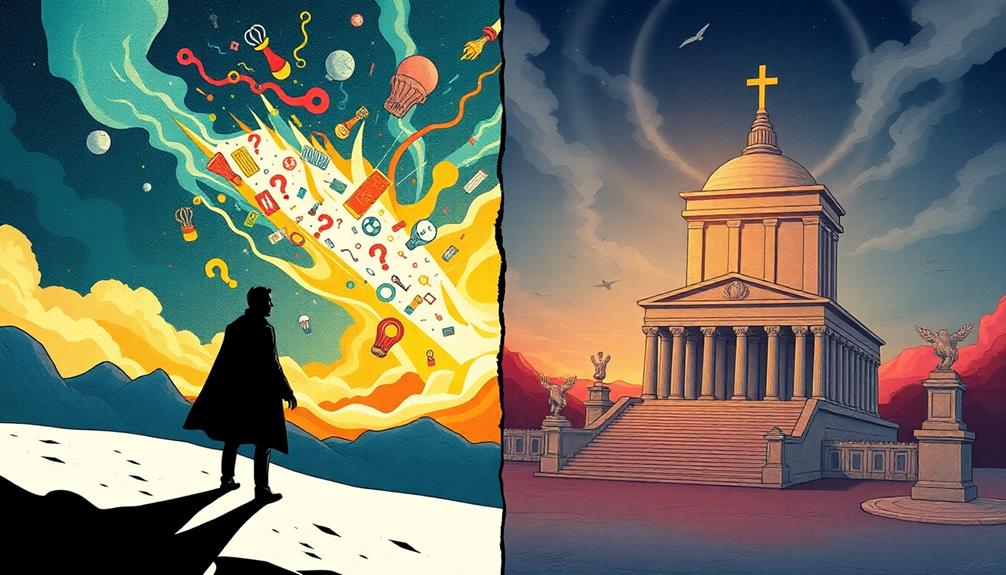
Skepticism plays an essential role in promoting critical inquiry, pushing you to question the status quo and seek evidence for your beliefs.
It's vital to approach health claims, such as the health benefits of coffee, with a discerning mindset, as not all information is equally valid.
It helps you balance knowledge and ignorance, reminding you that uncertainty can lead to deeper understanding and growth.
Critical Inquiry Importance
Many people underestimate the power of critical inquiry, yet it's a cornerstone of skepticism that challenges established beliefs and encourages you to question the evidence behind claims. By engaging in critical inquiry, you explore various philosophical perspectives, allowing you to understand different viewpoints and the reasoning that supports them. This practice is essential in today's world, where misinformation can easily spread.
Additionally, incorporating witty literature quotes can provide humor and insight that enhance discussions around skepticism and critical thought.
Genuine skeptics embrace epoche, the art of suspending judgment, which keeps you open to new evidence and insights. This dynamic approach fosters a deeper understanding and appreciation of knowledge, as you recognize that what you know may always be subject to revision.
The distinction between Nescio and Nesciam reveals that while some seek the truth through inquiry, others may hide behind ignorance.
Skeptical inquiry promotes intellectual humility, urging you to acknowledge your limitations and biases in the quest for understanding. By actively engaging with skepticism, you cultivate a mindset that navigates the complexities of truth more adeptly, fostering a more nuanced appreciation of knowledge.
Ultimately, critical inquiry empowers you to challenge assumptions and seek a deeper understanding of the world around you.
Knowledge and Ignorance Balance
Balancing knowledge and ignorance requires a mindset that values ongoing questioning and self-awareness. When you embrace skepticism, you acknowledge that your understanding is always evolving. This perspective encourages you to confront your ignorance, fostering a genuine desire to seek truth through critical examination.
As a Nescio, you remain open to new ideas and insights, contrasting sharply with the Nesciam who justifies their ignorance. Additionally, adopting practices like mindfulness can help you remain present and aware of your thought processes, promoting a healthier approach to personal growth and understanding top wellness tips.
The practice of epoche, central to skepticism, allows you to suspend judgment. This neutrality helps you explore conflicting ideas without bias, leading to a more balanced understanding of knowledge. By questioning established beliefs, you create a dynamic interplay between knowledge and ignorance that promotes deeper exploration of truths and assumptions.
Skepticism acts as a counterbalance to dogmatism, challenging rigid beliefs and encouraging discernment. This discernment becomes essential in maneuvering the fine line between knowledge and ignorance.
Ultimately, by embracing skepticism, you cultivate a nuanced understanding of reality, one that acknowledges the limits of your knowledge and the vastness of what you still have yet to learn. This balance empowers you to grow intellectually and personally.
Challenges of Dogmatism

Dogmatism frequently presents significant challenges in both personal and intellectual growth. When you cling too tightly to specific beliefs, you often dismiss alternative viewpoints, which stifles critical inquiry. This unwavering commitment can create a framework of absolute certainties that hinders your ability to adapt to new information.
In the domain of education, for instance, this rigidity can impede the integration of personalized learning approaches that cater to diverse student needs and encourage innovation.
Consider these challenges:
- Resistance to conflicting evidence: Adhering strictly to dogmatic beliefs makes it hard to accept information that contradicts your views.
- Lack of adaptability: The rigidity of dogmatism limits your ability to engage constructively in discussions, leaving you stuck in a narrow perspective.
- Stifled inquiry: By ignoring skepticism, you miss out on the essential questions that drive intellectual exploration and growth.
In environments where dogmatism thrives—such as certain religious or scientific circles—individuals often avoid questioning established doctrines. This detachment can prevent you from understanding complex truths.
Balancing Perspectives

How can you strike the right balance between skepticism and dogmatism in your pursuit of knowledge? It's important to recognize that both concepts play significant roles in how you understand the world.
Skepticism encourages you to question assumptions, fostering an open-minded approach that allows for continuous inquiry. On the other hand, dogmatism can provide necessary certainty and reference points, helping you evaluate beliefs effectively.
Navigating between these two extremes is essential to avoid intellectual stagnation or blind acceptance. You need to critically examine your beliefs while being open to new ideas.
Contextual frameworks often influence the validity of truth claims, so it's necessary to remain flexible. This balance enables both skepticism and dogmatism to coexist, enriching your understanding of complex issues.
Establishing shared frameworks in discussions can further enhance this balance. By doing so, you create an environment where skeptics and dogmatists can communicate effectively.
This fosters productive debates and helps you appreciate differing perspectives on truth. Ultimately, achieving balance between skepticism and dogmatism leads to a more nuanced understanding of knowledge, allowing you to grow intellectually and personally.
Frequently Asked Questions
What Is the Difference Between Skepticism and Dogmatism?
Skepticism encourages you to question beliefs and seek evidence, while dogmatism pushes you to accept certain truths without doubt. Embracing skepticism fosters open-mindedness, whereas dogmatism often leads to intellectual stagnation and resistance to new ideas.
What Is the Difference Between Skepticism and Relativism?
Isn't it intriguing how skepticism questions knowledge while relativism claims truth is subjective? You seek evidence and clarity with skepticism, but relativism suggests every belief holds validity. Understanding this can deepen your critical thinking skills.
What Is the Paradox of Skepticism?
The paradox of skepticism lies in its self-defeating nature. You claim knowledge can't be certain, yet that assertion itself suggests you know something. This contradiction challenges your understanding of knowledge and belief's very foundations.
Which Philosopher Refuted Skepticism?
You might consider G.E. Moore as a philosopher who refuted skepticism. He emphasized common-sense beliefs, asserting that their certainty surpasses skeptical claims, challenging the notion that doubt should undermine our understanding of reality.
Conclusion
As you stand at the crossroads of skepticism and dogmatism, picture a vibrant tapestry woven with threads of inquiry and conviction. Skepticism invites you to explore the unknown, like a curious traveler peering into the misty horizon, while dogmatism wraps itself in a heavy cloak of certainty. Embrace the dance between these worlds, allowing the light of questioning to illuminate your path, and find harmony in the vibrant interplay of belief and doubt, where truth often flourishes.
Ancient Greek Skepticism and Mythology
Are We All Just Characters in a Myth? The Philosophical Debate Continues
Just as myths shape our identities, one must wonder: are we the authors of our own stories, or merely characters in a grand narrative?

You live within a tapestry of myths that shape your identity and how you perceive the world. These narratives offer explanations for existence, origins, and culture. Philosophically, it raises questions about free will and purpose—are you the author of your story or just a character in someone else's? Myths resonate deeply, connecting you to universal themes that reflect shared human experiences. They evolve with society, adapting to modern dilemmas and creating new narratives. Exploring this idea opens up discussions about identity, making you ponder your role in this ongoing story. There's much more to uncover in this fascinating debate.
Key Takeaways
- Myths provide frameworks for understanding identity and existence, suggesting we might all play roles in a larger narrative.
- The concept of archetypes in myths reflects universal human experiences, implying that individuals can embody these timeless characters.
- Philosophical debates on existence question whether life is a scripted narrative, akin to characters in a mythological tale.
- Modern myths in popular culture often mirror personal journeys, reinforcing the idea that individuals navigate their own mythic stories.
- Engaging with myths fosters empathy and connection, highlighting the shared human experience while questioning our roles within these narratives.
The Essence of Myths
Exploring the essence of myths reveals their profound role in shaping cultural identity and understanding. Myths serve as symbolic narratives that reflect how you and your community view yourselves, providing explanations for both natural and cultural phenomena. Creation myths, for instance, demonstrate humanity's quest to comprehend its origins and purpose, much like explorers who set out on journeys to discover new horizons and insights into existence the thrill of adventure. They address existential questions, helping you navigate the complexities of life and death.
Throughout history, myths have evolved from oral traditions to documented narratives, becoming integral in transmitting knowledge and cultural values across generations. The themes of creation, death, and the afterlife recur in myths, revealing a universal human struggle to make sense of existence and cope with mortality's fear.
Scholarly debate often surrounds the interpretations of these myths, especially as modern adaptations reflect contemporary values and societal norms. Yet, despite these shifts, the psychological essence of myths remains significant, tapping into the collective unconscious and resonating through archetypes that facilitate personal growth.
Historical Context of Myth-Making

Myths have always been more than simple stories; they're foundational narratives that frame human existence within various historical contexts. Throughout history, societies created myths to explain the creation of the world and natural phenomena, shaping their cultural customs. Initially, early anthropologists saw these myths as sacred and tied to religion. However, modern scholars highlight their relevance in addressing societal norms and existential questions.
The change from oral traditions to documented narratives marked a significant evolution in myth-making. This shift allowed myths to be preserved and reinterpreted across generations, ensuring their survival. Over time, historical figures like Jesus and Muhammad became enveloped in mythologized narratives, showcasing how myths can evolve from historical truths into modified tales.
Here's a quick overview of the historical context of myth-making:
| Aspect | Ancient Myths | Modern Interpretation |
|---|---|---|
| Creation of World | Explains origins | Reflects societal issues |
| Cultural Role | Defines customs | Addresses existential queries |
| Evolution | Oral to written | Adaptation in popular culture |
Through this lens, you can appreciate how myths continuously shape and reflect human experience.
Modern Myths in Popular Culture
Today's popular culture is a fertile ground for the emergence of modern myths, where narratives crafted through films, literature, and digital media capture the essence of contemporary societal values and challenges. You see this in the Marvel Cinematic Universe, which spins a modern mythos around superheroes, blending archetypal themes of heroism and sacrifice with current discussions on identity and morality.
In relationships, the dynamics of love and heartbreak often echo these mythological themes, as individuals navigate the complexities of connection and emotion, such as the importance of clear communication during a breakup the classy way to explain a breakup.
Popular culture also reinterprets ancient myths, as in adaptations like "Percy Jackson" and "The Hunger Games," weaving timeless themes of struggle and resilience into fresh storytelling frameworks.
Video games such as "The Legend of Zelda" and "God of War" incorporate mythological elements, allowing you to engage with and reinterpret classic narratives in interactive ways.
Moreover, the rise of social media platforms has accelerated the spread of modern myths, creating new cultural narratives that often mix fact and fiction. This shapes public perception and collective beliefs, illustrating how deeply modern myths are embedded in our daily lives.
Philosophical Implications of Myth

Myths shape how you view your reality, offering a framework to explore your identity and existence. They raise essential questions about who you're and how you fit into the larger story of life.
Myth as Reality Framework
A framework for understanding reality often emerges through the stories we tell, and myths play an essential role in this process. They address existential questions and reflect the collective beliefs that shape our moral compass.
By tapping into the collective unconscious, as Jung suggests, myths offer a way for you to connect with universal experiences that resonate across cultures. Just as individuals with borderline personality disorder may seek meaning through emotional narratives, myths can also help us navigate the complexities of human experience.
Here are some key aspects of myths as a reality framework:
- Existential Guidance: Myths provide insights into human existence and moral actions.
- Cultural Reflection: They adapt over time to address contemporary societal issues while maintaining core themes.
- Symbolic Narratives: Myths offer stories that navigate life's complexities, helping you understand your place in the universe.
- Universal Archetypes: They connect you to shared human experiences, fostering empathy and understanding.
- Behavioral Influence: Myths can guide individual and societal behavior based on the values they embody.
Identity and Existence Exploration
Exploration of identity and existence often leads you to the narratives embedded in myths, which serve as mirrors reflecting collective beliefs and values. In ancient times, myths were fundamental for understanding who you're and your place in the world. They offered frameworks for grappling with complex questions of purpose and morality, shaping societal norms and personal identities.
Furthermore, just as relationships evolve and require nurturing, so too does our understanding of identity—this is significant in fostering relationships that deepen bonds. Philosophers argue that these narratives provide deeper insights into human existence, addressing the existential dilemmas modern rationality often overlooks.
When you investigate the psychological aspects of myths, as proposed by Jungian theory, you discover how archetypes influence both personal identity and collective consciousness. These ancient stories continue to resonate today, suggesting that the narratives you construct about yourself are essential to understanding your identity in a contemporary context.
Myths and Human Identity

Countless cultures rely on foundational narratives to shape their identities, revealing how deeply intertwined myths are with our understanding of self. Myths don't just entertain; they reflect existential themes that resonate universally, influencing your perception of human identity. Understanding these cultural narratives can enhance your cultural intelligence, allowing you to navigate diverse perspectives more effectively.
Consider how myths impact you and those around you:
- Cultural Frameworks: Myths provide contexts for self-image and collective beliefs.
- Shared Experiences: Archetypes, like the hero's journey, illustrate common human values.
- Existential Reflection: They explore themes of creation, mortality, and what it means to be human.
- Adaptability: Myths evolve, mirroring societal changes and maintaining relevance.
- Personal Constructs: Your identity is shaped by the narratives prevalent in your culture.
These elements show that your human identity isn't just a personal endeavor; it's a reflection of larger narratives. By engaging with myths, you can better understand the roles you play in your own life and society.
As you navigate your identity, remember that these stories are more than mere tales—they're foundational to who you're and how you connect with the world.
The Future of Mythical Narratives

You've likely noticed how modern myths adapt to reflect today's cultural landscape, showing their relevance in films and literature.
For instance, contemporary artists often draw inspiration from literary themes, exploring identity and social issues through their work, which reflects the ongoing dialogue between tradition and modernity in the arts, as seen in the influence of literature on Bengali visual arts.
As society changes, these narratives evolve, offering fresh insights into our identities and challenges.
Let's explore how these adaptations shape our understanding of the human experience in a rapidly changing world.
Modern Myth Adaptation
As society evolves, modern myth adaptation emerges as a powerful reflection of contemporary values and concerns. You'll notice how ancient myths are reinterpreted in films and literature, resonating with today's audience.
These adaptations reveal the adaptability of myth-making, addressing existential themes and cultural anxieties, much like the evolution of personal artistic style that reflects changing societal contexts.
Consider these key aspects of modern myth adaptation:
- Reimagined Narratives: Old myths take on new forms, exploring current societal issues.
- Archetypal Characters: Familiar story arcs echo traditional myths, tapping into universal human experiences.
- Blending Genres: Popular media mixes various genres, creating fresh myths that resonate deeply.
- Digital Participation: Social media platforms allow everyone to contribute to myth-making, reflecting the collective psyche.
- Cultural Unification: Evolving myths foster community bonds, reinforcing shared identity and values.
Through these adaptations, you can see how narratives continue to shape our understanding of the world.
The ongoing evolution of myth in contemporary culture proves that it's not just relevant; it's essential for exploring human emotions and experiences in an ever-changing landscape.
Cultural Relevance Today
In today's rapidly changing world, the cultural relevance of mythical narratives remains crucial. You might find that modern myths, rooted in the tales of ancient people, continue to shape our understanding of identity and morality. As films, literature, and digital media evolve, they reinterpret these traditional narratives to address contemporary issues like climate change and mental health. This adaptability guarantees myths resonate with current dilemmas, serving as cultural touchstones that unify communities.
By engaging with these modern myths, you foster critical thinking and develop deeper connections to real-world challenges. They invite you to explore the complexities of existence in a society that can often feel overwhelming.
The blending of genres in contemporary storytelling makes these narratives more accessible, allowing diverse audiences to reinterpret ancient tales in light of present-day values and concerns.
Ultimately, mythical narratives aren't just relics of the past; they remain significant in maneuvering our collective human experience. As you reflect on the stories that shape your worldview, consider how these time-honored myths influence your understanding of the world today and into the future.
Frequently Asked Questions
Are All Myths Entirely Fictional?
Not all myths are entirely fictional. They often blend historical truths with imaginative narratives, reflecting cultural values and deeper realities. You can see how they adapt over time, revealing insights about societies and human experiences.
What Is the Relation of Myth to Philosophy?
As the saying goes, "Truth is stranger than fiction." Myths and philosophy intertwine, shaping your understanding of existence and morality. They offer frameworks for exploring deep questions about identity, reality, and the human experience.
Who Are the Main Characters in a Myth?
In a myth, you encounter gods, heroes, and mythical creatures, each embodying human traits. Characters like Zeus and Odysseus navigate challenges, reflecting cultural values and universal themes that resonate with your own experiences and growth.
What Are the 5 Characteristics of a Myth?
So, you think myths are just bedtime stories? Think again! They've got archetypal characters, moral lessons, cultural significance, existential themes, and an oral tradition that keeps our human quirks alive through generations. Fascinating, right?
Conclusion
As you navigate through the tapestry of myths, you realize they're not just stories—they're mirrors reflecting our shared human experience. Each thread weaves together history, culture, and identity, shaping how you see yourself and the world. While the debate about our existence as mere characters may continue, these mythical narratives offer a canvas for understanding life's complexities. So, embrace the myth, for it's in these tales that you might just find the essence of who you are.
-

 Health4 months ago
Health4 months agoUnderstanding Running Dry: Dive into Its Meaning
-

 News4 months ago
News4 months agoUnlock Your Potential with Biohacking Essentials
-

 News4 months ago
News4 months agoUnlock the Mystery of Sonoluminescence Today!
-
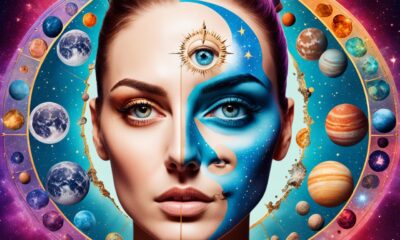
 News4 months ago
News4 months agoStar Appeal: Can Astrology Predict Your Hotness?
-

 Health4 months ago
Health4 months agoStairmaster vs Running: Calorie Burn Compared
-

 News4 months ago
News4 months agoDebunking Myths: J.D. Vance and His Unique Quirks
-

 News4 months ago
News4 months agoUnlock Quorum Sensing Secrets – Communication in Bacteria
-

 Health4 months ago
Health4 months agoLow-Calorie Fruit Dip: Cool Whip Delight
